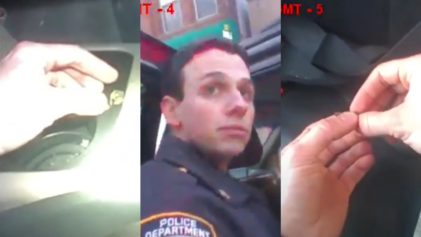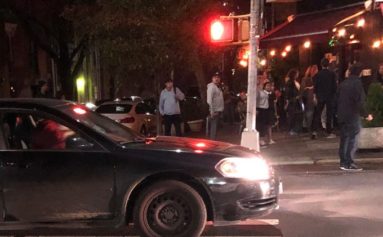Technology is a double-edged sword.
Despite the speed and convenience of the digital age, it also has opened the portal to overuse and misuse. Business can use data to more narrowly target customers; candidates can more effectively pump potential donors for money. It’s how AARP can find and welcome you as a member even before your 50th birthday.
Now, according to The Washington Post, police are using searchable photo databases to find not only suspects and their accomplices, but potential witnesses as well.
More than 120 million people are in these facial databases, which “have grown rapidly in recent years and generally operate with few legal safeguards beyond the requirement that searches are conducted for ‘law enforcement purposes.’ Amid rising concern about the National Security Agency’s high-tech surveillance aimed at foreigners, it is these state-level facial-recognition programs that more typically involve American citizens,” The Post reported.
People may become concerned when they hear about the government’s use of telephone, email and now visual databases, but it certainly should come as no surprise.
Banking online, exposing our lives on social media sites, credit and bank cards embossed with our photos, photo registration cards with data on our children (intended to help police find them if they are hurt, kidnapped or run away), cell phone use, photo ID requirements for proof of age, citizenship and legal residency—all the things that make it easy to run our daily lives and make life more enjoyable, or at least less encumbered, also set us up for the hit.
The technology helps law enforcement to identify the bad guys, often through surveillance cameras that catch their misdeeds on video cameras. Those images are then compared against official photo databases.
The flaw in the system, however, is that some law enforcement operations have put images of people never arrested “in what amounts to perpetual digital lineups,” according to The Post report.
Back in 1990, a group of parents successfully sued the New York Police Department after it was learned that officers had gone to Forest Hills High School in Queens, pulled black male students out of class, photographed and fingerprinted them and put them in lineups.
The students were told not to worry because police would know that the youths were not guilty of any crime and were just “helping” police by filling out the lineup.
One student, worried that he might be erroneously picked out of the lineup, told his parents, who told other parents. The suit was settled and NYPD agreed to take the mugshots out of the suspect books and to destroy the files with the boys’ photos and fingerprints.
But those were physical files. Getting rid of digital data isn’t always as easy because it is harder to erase a record that can be duplicated many times over.
Employment experts tell job seekers to not only be careful about what they post on their Facebook pages, but what their friends post about them on their Facebook pages. Even if something questionable is removed, if a friend copied it or “shared” it, there can quickly be dozens if not hundreds or thousands of copies spread around—even if the original Facebook user has a page open only to friends and family.
It stands to reason, then, that law enforcement has the resources to take the technology to the next level.
“Where is government going to go with that years from now?” Louisiana state Rep. Brett Geymann, a conservative Republican who has fought the creation of such systems there, told The Post. “Here your driver’s license essentially becomes a national ID card.”
“Facial-recognition technology is part of a new generation of biometric tools that once were the stuff of science fiction, but are increasingly used by authorities around the nation and the world. Though not yet as reliable as fingerprints, these technologies can help determine identity through individual variations in irises, skin textures, vein patterns, palm prints and a person’s gait while walking,” The Post reported.
Add to that the recent U.S. Supreme Court decision upholding the collection of DNA during arrests, and the whole idea of privacy is turned upside down.
Law enforcement contends the facial-recognition technology is intended to help not hurt average citizens, but the problem with that argument is that if the good guys in government are ever replaced by bad guys, the mechanism is already established to use the powers for evil rather than good.
Jackie Jones, a journalist and journalism educator, is director of the career transformation firm Jones Coaching LLC and author of “Taking Care of the Business of You: 7 Days to Getting Your Career on Track.”


